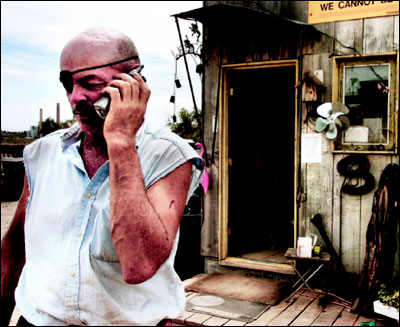 The eco-market is in its infancy in terms of developing smart strategies that will drive environmentally friendly behaviors. Establishing “green” mindsets is only the first step to get consumers thinking about their overall impact on the planet and to date this has been handled mostly through marketing efforts. “Green” labels help consumers attach eco-relevancy but then we need to evolve beyond “green” to educate consumers on simply making smart choices. We need to develop systems using standards that help them evaluate and make their own educated choices.
The eco-market is in its infancy in terms of developing smart strategies that will drive environmentally friendly behaviors. Establishing “green” mindsets is only the first step to get consumers thinking about their overall impact on the planet and to date this has been handled mostly through marketing efforts. “Green” labels help consumers attach eco-relevancy but then we need to evolve beyond “green” to educate consumers on simply making smart choices. We need to develop systems using standards that help them evaluate and make their own educated choices.
The regulated carbon cap and trade system is providing a basis for just such mechanisms.
Enter ideas like the Carbon Quotient Project.
The CQP is an extension of similar concepts launched in Thailand, Japan, Britain and France, that essentially strive to create a standard unit for product labels. Much like the nutritional fact panel found on all packaged food products today, the CQ could give us GHG’s emitted, reduced or otherwise advise on a standard unit of measure for the carbon footprint of each product. We, the consumer, then have the ability to offset our bag of potato chips or bottle of beer by riding our bike to work or purchasing another, more earth-friendly item.
There are actually a million different behaviors that this could launch but the bottom line is that we would start to become educated relative to a standard unit, hold businesses accountable and gradually start to bring about global responsibility and accountability for how businesses are impacting the deteriorating environment around us. Smart eco-preneurists will tap into these long-term strategies that ultimately educate consumers and reinforce the goals of marketplace regulation.
Image Credit: environmental performance by MGood


